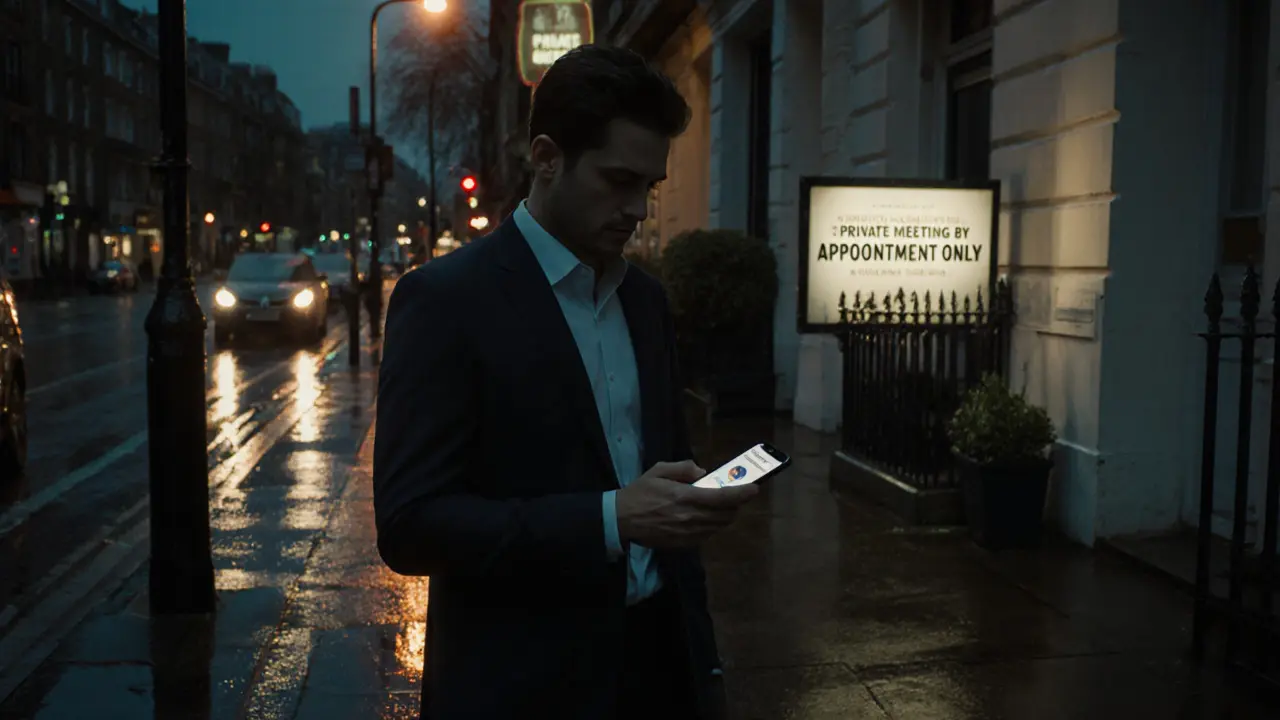London has a reputation for being one of the most cosmopolitan cities in the world-and that includes its adult services sector. But when it comes to escorts in London, the truth is buried under layers of Hollywood fiction, tabloid headlines, and shady online ads. Most people have no idea what’s real and what’s made up. Is it all illegal? Are all escorts exploited? Do they all work out of luxury apartments? Let’s cut through the noise.
Myth 1: All Escort Work Is Illegal in London
It’s a common assumption that if you’re paying for companionship with sexual services, you’re breaking the law. But that’s not true. In the UK, prostitution itself is not illegal. What’s against the law is soliciting in public, running a brothel, or pimping. That means an escort working alone, arranging meetings privately, and charging for time and company is operating in a legal gray area-not a black one.
Think of it this way: if a woman charges £150 for dinner, drinks, and conversation-and later, both parties agree to have sex-that’s not a crime. But if she advertises on a street corner or shares a flat with three others who all take clients, that’s a brothel-and that’s illegal. Most reputable London escorts avoid the red flags. They use discreet websites, vet clients carefully, and never work in groups. The law targets exploitation, not consensual adult arrangements.
Myth 2: Escorts Are All Victims or Trafficked
The media loves a tragic story. And so, the narrative sticks: every escort is a victim of abuse, poverty, or coercion. But reality is messier. A 2023 study by the London School of Economics surveyed 212 independent escorts in Greater London. Nearly 68% said they chose this work voluntarily. Many had degrees, full-time careers, or were students. Some used it to pay off debt. Others did it because they liked the flexibility or the income.
Yes, trafficking exists. And yes, some people are forced into the industry. But lumping all escorts into that category is both inaccurate and harmful. It ignores agency. It erases the voices of women-and men-who made an informed choice. The real issue isn’t the work itself-it’s the lack of legal protections. Without proper labor rights, anyone in the industry is more vulnerable. That’s the problem to solve, not the job.
Myth 3: Escorts All Work in High-End Apartments or Hotels
Pop culture paints escorts as glamorous figures meeting clients in Mayfair penthouses or five-star hotels. That happens-but it’s rare. Most escorts in London work from their own homes, rented rooms, or even public cafés for initial meetings. The average hourly rate for a London escort is between £100 and £250, depending on experience and location. Only the top 5% charge £500+ and work in luxury settings.
Many escorts prefer working from home. It’s safer, cheaper, and gives them control. A 2024 survey by the UK Sex Workers’ Advocacy Group found that 72% of independent escorts in London conducted sessions at their own residences. Only 11% used hotel rooms regularly. The rest used neutral public spaces for first meetings or stuck to private rentals. The image of the luxury escort? It’s a marketing myth.

Myth 4: You Can’t Trust Online Listings or Apps
Scams are everywhere. Fake profiles, payment fraud, impersonators-yes, they exist. But so do legitimate platforms. Reputable escort sites in London use verification systems: ID checks, client reviews, background screening, and encrypted messaging. Sites like Escort in London (a well-known directory with 12 years of operation) require proof of identity and ban users who violate terms.
The biggest risk isn’t the platform-it’s the client. Most scams happen when someone asks for payment upfront via untraceable methods (like gift cards or crypto). Legit escorts never ask for money before meeting. They use secure booking systems, confirm identities, and meet in safe, public places first. If a listing looks too perfect-too many photos, no reviews, no contact info-it’s probably fake. Trust your gut. And always check the platform’s reputation.
Myth 5: Escorts Are Only Women
When people think of escorts in London, they picture women. But male and non-binary escorts are a growing part of the industry. A 2024 report from the National Association of Independent Escorts found that 18% of registered escorts in London identified as male, and another 6% as non-binary or genderfluid. Demand for male escorts has risen sharply, especially among LGBTQ+ clients and older professionals seeking companionship without judgment.
Male escorts often charge similar rates to their female counterparts-£120-£280 per hour-but they’re less likely to be featured on mainstream sites. Many operate through niche networks, private forums, or word-of-mouth. Their services are just as varied: dinner dates, travel companions, emotional support, or sexual encounters. The stereotype that only women offer companionship is outdated-and it leaves a lot of people invisible.

Myth 6: The Industry Is Dying Because of AI and Apps
Some say dating apps like Tinder and Bumble killed the escort industry. Others blame AI companions and chatbots. But data tells a different story. According to the UK Office for National Statistics, the number of people advertising escort services online has increased by 22% since 2020. Why? Because the demand hasn’t gone away-it’s evolved.
People aren’t looking for sex. They’re looking for connection, confidentiality, and control. A 2025 survey of 1,500 Londoners found that 31% had considered hiring an escort at least once, mostly for emotional support or to avoid the awkwardness of dating. The real threat isn’t technology-it’s stigma. When people feel ashamed to talk about their needs, they turn to unreliable sources. The industry adapts, but it doesn’t disappear.
Myth 7: All Escorts Are Young and Beautiful
Again, media pushes the same image: 20-something models with perfect skin and designer clothes. But London’s escort scene is far more diverse. The average age of an independent escort is 34. Many are in their 40s, 50s, and even 60s. Some have children. Others are retired professionals. They don’t need to look like magazine covers to attract clients. What matters is personality, intelligence, and emotional presence.
One escort in her late 50s, who worked as a university lecturer before transitioning to escorting, told a reporter: “I’m not here because I can’t find another job. I’m here because I’m good at making people feel seen.” That’s the real currency in this industry-not youth, but authenticity.
What Actually Matters
Behind all these myths is one simple truth: the escort industry in London isn’t about sex. It’s about human connection. People hire escorts for company when they’re lonely. For confidence when they’re insecure. For discretion when they’re embarrassed. For relief when they’re overwhelmed.
The real danger isn’t the work-it’s the silence around it. When society refuses to talk honestly about adult services, it pushes people into the shadows. That’s when exploitation thrives. The solution isn’t to criminalize or condemn-it’s to understand, regulate, and protect.
If you’re curious about the industry, ask questions. If you’re considering hiring someone, do your research. If you’re working in it, know your rights. London’s escort scene isn’t glamorous. It’s not dangerous. It’s just human. And it’s here to stay.
Is it legal to hire an escort in London?
Yes, paying for companionship with sex is not illegal in the UK. What’s illegal is soliciting in public, running a brothel, or controlling someone else’s work. Independent escorts who work alone, arrange meetings privately, and charge for time are not breaking the law.
Are most escorts victims of trafficking?
No. While trafficking does occur, most independent escorts in London choose this work voluntarily. A 2023 LSE study found that 68% of respondents entered the industry by choice, often for flexibility, income, or personal reasons. Assuming all escorts are victims ignores their agency and harms real victims by conflating consent with coercion.
Do escorts only work in luxury hotels?
No. Most escorts in London work from their own homes or rented rooms. Only about 11% regularly use hotels. The idea of high-end penthouse meetings is a myth pushed by media. The majority prioritize safety, privacy, and cost-efficiency over glamour.
Are male escorts common in London?
Yes. Around 18% of registered escorts in London are male, and another 6% identify as non-binary. Demand has grown, especially among LGBTQ+ clients and professionals seeking discreet companionship. Male escorts often operate through private networks and niche platforms rather than mainstream sites.
Can you trust escort websites?
Some can. Reputable sites verify identities, require client reviews, and ban scammers. Red flags include no contact info, upfront payment requests, or overly perfect photos. Always meet in public first, use secure payment methods, and check platform reputation. Trust your instincts.
Is the escort industry declining because of dating apps?
No. The number of people advertising escort services in London has increased by 22% since 2020. Dating apps don’t offer the same level of discretion, control, or paid companionship. People still hire escorts for emotional support, confidentiality, and structured time-not just sex.
Are all escorts young and attractive?
No. The average age of an escort in London is 34. Many are in their 40s, 50s, and beyond. What clients value most is personality, intelligence, and emotional presence-not youth or looks. Older escorts often have more experience, better communication skills, and deeper connections with clients.
